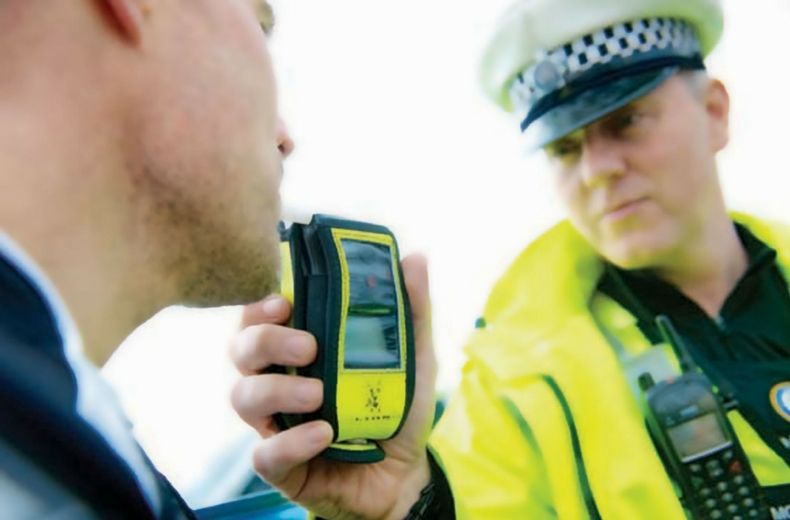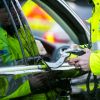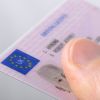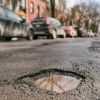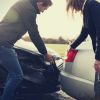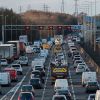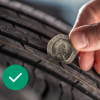Driving over the alcohol limits in the UK is illegal and you could be imprisoned, fined and banned from driving if you’re found guilty of drink-driving.
According to the latest yearly statistics from the Department for Transport, an estimated 6,800 people were killed or injured when at least one driver was over the drink-drive limit.
Worryingly, a Cambridge University study found that more than half of drivers don’t know when they’re over the drink-drive limit before getting behind the wheel. So, learning the risks and keeping yourself up to date with the latest rules is vital for all drivers.
To keep you safe and on the right side of the law, here’s our legal guide to everything you need to know about the rules surrounding drink-driving in the UK.
What is the drink-driving limit in England, Wales and Northern Ireland?
According to the Metropolitan Police, the legal alcohol limit in England, Wales and Northern Ireland for driving is 80 milligrams of alcohol per 100 millilitres of blood or 35 micrograms of alcohol per 100 millilitres of breath.
What is the drink-driving limit in Scotland?
The drink drive limit in Scotland is 22 microgrammes (mcg) of alcohol in 100 ml of breath; 50 milligrammes (mg) of alcohol in 100ml of blood; and 67 milligrammes (mg) in 100 ml of urine.
Should the drink-drive limit be the same across the UK?
Whether England, Wales, and Northern Ireland should follow Scotland’s lead regarding the drink-drive limit has been a subject for discussion for several years, with many believing that the limit should be standardised.
In its Report on Motoring, the RAC reiterated its call for the UK government to reconsider current drink-drive limits and reduce the legal blood alcohol limit nationwide to 50mg/100ml.
However, some safety campaigners don’t think this reduction would go far enough in tackling drink-driving and are campaigning for a UK-wide limit of 20mg per 100ml — in effect, a zero-tolerance policy.
The drink-drive limit has been a long-standing debate in the UK. Some people feel that the limit should remain the same across the country, while others believe it should be lowered.
The most common argument for keeping the drink-drive limit the same is that it would make it easier for people to remember. Having a single limit would mean that everyone is aware of what the legal limit is, regardless of where they are in the UK. This could help to prevent people from driving after drinking too much and potentially getting into an accident.
On the other hand, some people believe that the drink-drive limit should be different in certain areas or lowered. This could be due to the fact that some areas have more dangerous roads, or that alcohol consumption is higher in certain areas. Lowering the limit could help to reduce the number of accidents caused by drink driving, as people would be less likely to take risks when the limit is lower.
Regardless of the decision, it’s essential that drivers are aware of the legal limit and are always mindful of how much they have had to drink before getting behind the wheel.
How many units of alcohol can you drink and drive?
As the NHS points out, there’s no safe way to calculate how many units you can consume and remain below the legal alcohol limit, so the only way to stay perfectly safe and legal is to avoid alcohol altogether.
In England, Wales and Northern Ireland, it is illegal to drive with a blood alcohol concentration (BAC) of more than 80 milligrams of alcohol per 100 millilitres of blood. This means that if you are caught driving with a BAC of more than 80, you will be arrested and charged with a drink-driving offence.
The best way to stay safe is to not drink and drive at all. If you do decide to drink, it is important to understand your own limits and not exceed them. It is also important to ensure you give yourself enough time for your body to process the alcohol before you drive.
One unit equals 10 millilitres or 8 grams of pure alcohol, but the effect a single unit has on your blood alcohol level varies from person to person, and is dependent on a number of different factors, such as:
- Gender
- Age
- Weight
- Any food you may have consumed
- The type of alcohol
- Tiredness
- Stress levels
The smallest amount of alcohol can affect your vision, reaction times and ability to drive, even if you remain well below the legal drink-drive limit of 80 milligrams per 100 millilitres.
Data from the World Health Organisation suggests that drivers with between 20-50 milligrams of alcohol per 100 millilitres of blood are three times more likely to die in a crash than those who have not consumed any alcohol.
So, the easiest way to make sure you remain safe behind the wheel is to simply not drink any alcohol at all if you intend to drive.
How many hours after drinking can I drive?
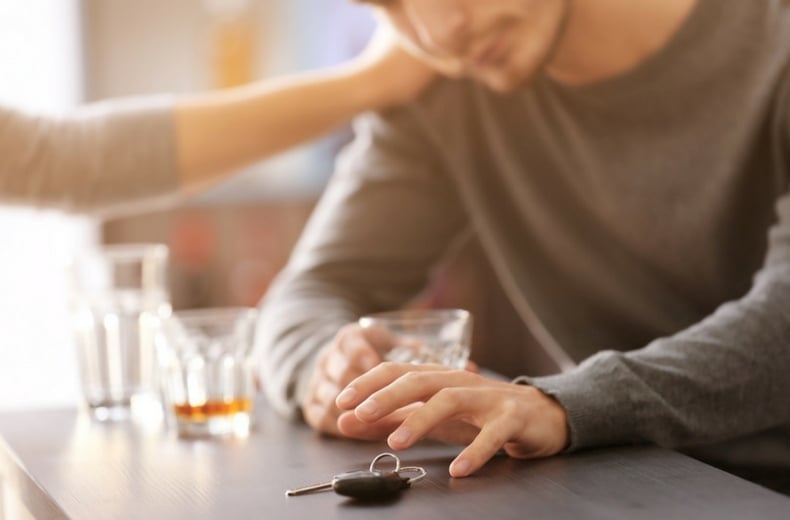
There’s no definitive answer to this question because there’s no exact way of knowing how long it will take you to sober up after drinking alcohol.
Old wives’ tales about how drinking coffee, eating, sleeping or showering will somehow make you sober up quicker are just that — old wives’ tales. In truth, the only thing that will definitely sober you up is time.
NHS research has suggested that it takes a typical adult an hour to process one unit of alcohol. A pint of strong lager contains three units of alcohol, so it will take around three hours for your body to process, but even then, this will depend on the individual.
So, if you have a drink at lunchtime don’t assume that you’ll be sober enough to drive home after work, because the chances are you could still be over the legal limit. To stay on the safe side, either take public transport or avoid drinking at lunch altogether.
If you have consumed a large amount of alcohol, it is recommended to wait at least 12 hours before driving. Increase this time up to 24 hours if you have drunk alcohol heavily.
Can I drive the morning after drinking?
As there’s no way of knowing how long it’ll take you to sober up, there’s also no way of knowing if you can legally and safely drive the morning after a night’s drinking.
To keep you below the limit, the road safety charity Brake advises that if you need to drive the next day you should stick to one or two drinks maximum, but if you have a particularly heavy night your driving could be impaired for all of the next day.
And don’t think about sleeping off a heavy night in your car, either. If you’re caught by police you could be charged with being “drunk in charge” even though you’re not actually driving.
If you’re heading out drinking then get a lift from a sober friend, book a taxi or check local public transport timetables and make sure you know when the last bus/train/tram leaves so you don’t get stranded.
It is important to keep in mind that alcohol can stay in your system for up to 24 hours, so even if you wait 12 hours, you may not be completely sober.
The best way to ensure you are safe to drive is to wait for your body to naturally metabolize the alcohol and to monitor your sobriety before getting behind the wheel.
Do many people still drink and drive?
According to the most recent figures from the UK Government, more than 28,000 people a year are convicted of drink driving.
This is in line with a disturbing trend which shows a growing number of motorists who are caught driving while over the limit.
In fact, DrinkDriving highlighted that up to 85,000 people a year drive over the limit.
What happens if I get caught drink-driving?
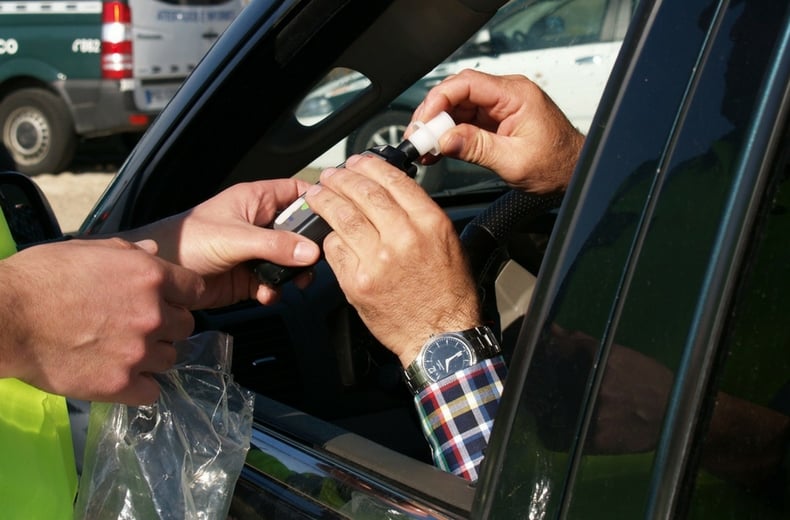
The police have the right to ask you to take a breath test if they believe you have been drinking, committed a traffic offence or been involved in a collision. If you refuse to supply a sample of breath you will be arrested and charged with a failure to provide specimen for analysis.
If you fail the breath test, you will be driven to a police station for a second breath test and if that returns a positive result, you will be charged.

RAC sale – up to 33% off*
• Roadside cover from £5.29 a month†
• We get to most breakdowns in 60 mins or less
• Our patrols fix 4/5 breakdowns on the spot

What are the penalties for drink-driving in the UK?
The penalties for being caught drink-driving are severe and you could face a prison sentence, driving ban and substantial fine if you’re found guilty. The actual penalty is up to the magistrate who hears your case and the severity of the offence.
As a guide, the Government has laid out the following set of consequences for a specific charge:
Being in charge of a vehicle while above the legal limit or unfit through drink could get you:
- Three months’ imprisonment
- A fine of up to £2,500
- A possible driving ban
Driving or attempting to drive while above the legal limit or unfit through drink could get you:
- Six months’ imprisonment
- An unlimited fine (at magistrate’s discretion)
- Banned from driving for at least a year (three years if convicted for a second time in 10 years)
Refusing to provide a specimen of breath, blood or urine for analysis could get you:
- Six months’ imprisonment
- An unlimited fine (at magistrate’s discretion)
- Banned from driving for at least a year
Causing death by careless driving while under the influence of drink could get you:
- Life imprisonment
- An unlimited fine (at magistrate’s discretion)
- Banned from driving for at least five years
- An extended driving test before your licence is returned
Other problems you may face if caught drink-driving
It’s worth noting that you might be able to reduce your ban by taking a drink-driving rehabilitation course if you’re banned from driving for 12 months or more, but it’s up to the court to decide whether or not to offer this.
Other issues include:
- A significant increase in the cost of your car insurance, with some companies refusing to offer cover
- Difficulty in finding a driving-related job. Indeed, all potential employers will see your previous conviction
- You may have trouble travelling to countries like the United States
Figures released by the Institute of Advanced Motorists suggest a drink-driving conviction would cost between £20,000 and £50,000 once you’ve taken into account fines, loss of income, legal fees and higher insurance premiums.
How can I avoid drink-driving?
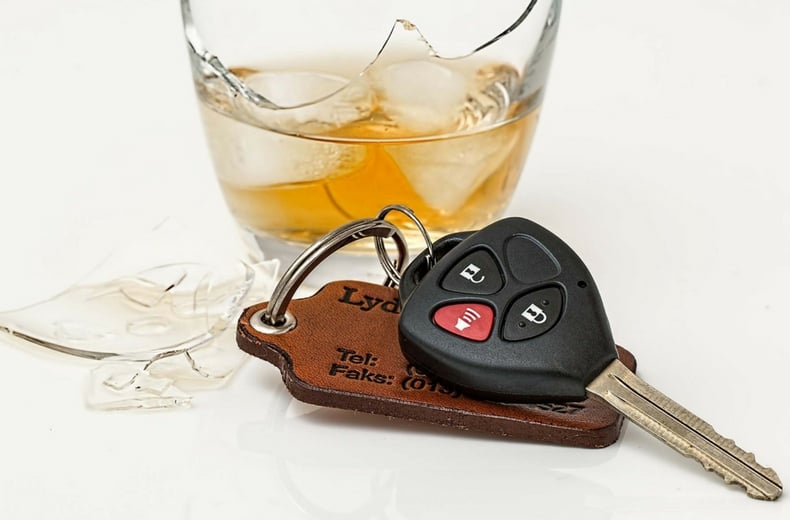
This one’s easy — just don’t drink if you’re planning to drive.
If you’re heading out for a night on the town, make sure you’re not put in a position that could see you getting behind the wheel, by planning your journey home at the end of the night.
Depending on your location and circumstances, this could include:
- Use public transport: check the times of the last train, bus, tube, or tram, and ensure you don’t end your night too far away from transport links
- Select a designated driver before you head out for the evening — you could offer to pay for their (non-alcoholic) drinks as a thank you
- Do something that doesn’t involve drinking
- Stick to alcohol-free drinks
- Book a taxi for a certain time or when you’re ready to set off for home
If you’re in any doubt whatsoever, don’t get behind the wheel.
How do I report someone for drink-driving?
Broaching the subject of drink-driving with a friend or family member can be difficult, particularly if sensitive subjects like alcoholism are involved. Try and convince them to share a taxi home instead or offer to be the designated driver yourself.
If you try and convince a stranger against drink-driving there’s a possibility they could get violent or abusive, particularly if they’re already quite drunk, so think twice before approaching anyone you don’t know.
If you do decide to report someone trying to operate a vehicle while drunk – whether a stranger, friend, or family member – you should call 999 and supply details about the car and driver to police.
If you wish to report someone after the incident has taken place, you can call 101 to talk to the police or call Crimestoppers anonymously on 0800 555 111.

RAC sale – up to 33% off*
• Roadside cover from £5.29 a month†
• We get to most breakdowns in 60 mins or less
• Our patrols fix 4/5 breakdowns on the spot

Drink-driving UK FAQs
- How many units can I have before driving?
Alcoholic units affect people differently, so there is no prescribed limit. However, the drink driving limits are measured by alcohol in the bloodstream.
According to the NHS, one unit equals 10ml or 8g of pure alcohol, which is around the amount of alcohol the average adult can process in an hour.
This means that in some cases one or two units could push you over the limit.
- UK drink driving limits 2025
For drivers in 2025 across England, Wales, and Northern Ireland, it is 80 milligrams of alcohol per 100 millilitres of blood. However, in Scotland, the limit is lower – 50 milligrams per 100ml of blood.
- How many pints can you have and drive?
There is no definitive number of pints someone can consume and still be legally allowed to drive. The best thing to do is not drink and drive. All drivers should always respect drink driving limits.
- How much alcohol is two times over the limit?
Drivers who are two times over the legal alcohol limit in England, Wales, or Northern Ireland would be 160 milligrams of alcohol per 100 millilitres, or 100 milligrams of alcohol per 100 millilitres of blood in Scotland.
- How much alcohol is three times over the limit?
Drivers who are three times over the legal alcohol limit in England, Wales, or Northern Ireland would be 2400 milligrams of alcohol per 100 millilitres, or 150 milligrams of alcohol per 100 millilitres of blood in Scotland.
- Drink drive limit England
According to the Metropolitan Police, the legal alcohol limit in England, Wales and Northern Ireland for driving is 80 milligrams of alcohol per 100 millilitres of blood or 35 micrograms of alcohol per 100 millilitres of breath.
- Drink drive limit Wales
In Wales, the legal alcohol limit in England for driving is 80 milligrams of alcohol per 100 millilitres of blood or 35 micrograms of alcohol per 100 millilitres of breath.
- Drink drive limit Scotland
The drink drive limit in Scotland is different to England, Wales, and Northern Ireland. In the country, it is 22 microgrammes (mcg) of alcohol in 100 ml of breath; 50 milligrams (mg) of alcohol in 100ml of blood; and 67 milligrams (mg) in 100 ml of urine.
- Drink driving limit Northern Ireland
For drivers in Northern Ireland, the alcohol limit for driving is 80 milligrams per 100 millilitres of blood or 35 micrograms of alcohol per 100 millilitres of breath.
- Blood alcohol limit UK
This is the limit of alcohol to have in your system for you to legally be allowed to drive. In England, Wales, and Northern Ireland, it is 80 milligrams of alcohol per 100 millilitres of blood. However, in Scotland, the limit is lower, at 50 milligrams per 100ml of blood.
Alcohol can impact everyone differently, so the best option is to have no alcohol and remain in the best possible condition to drive.

